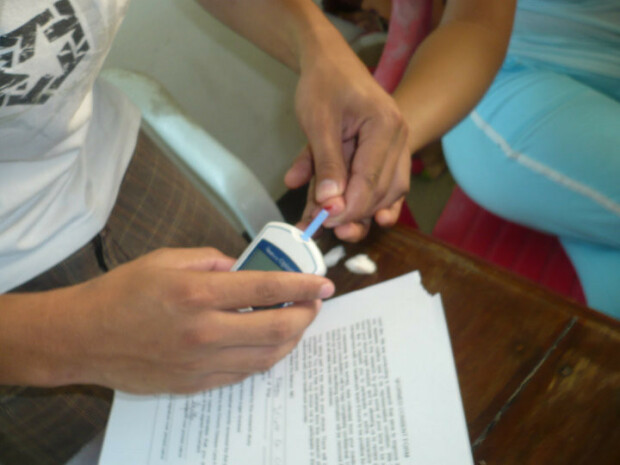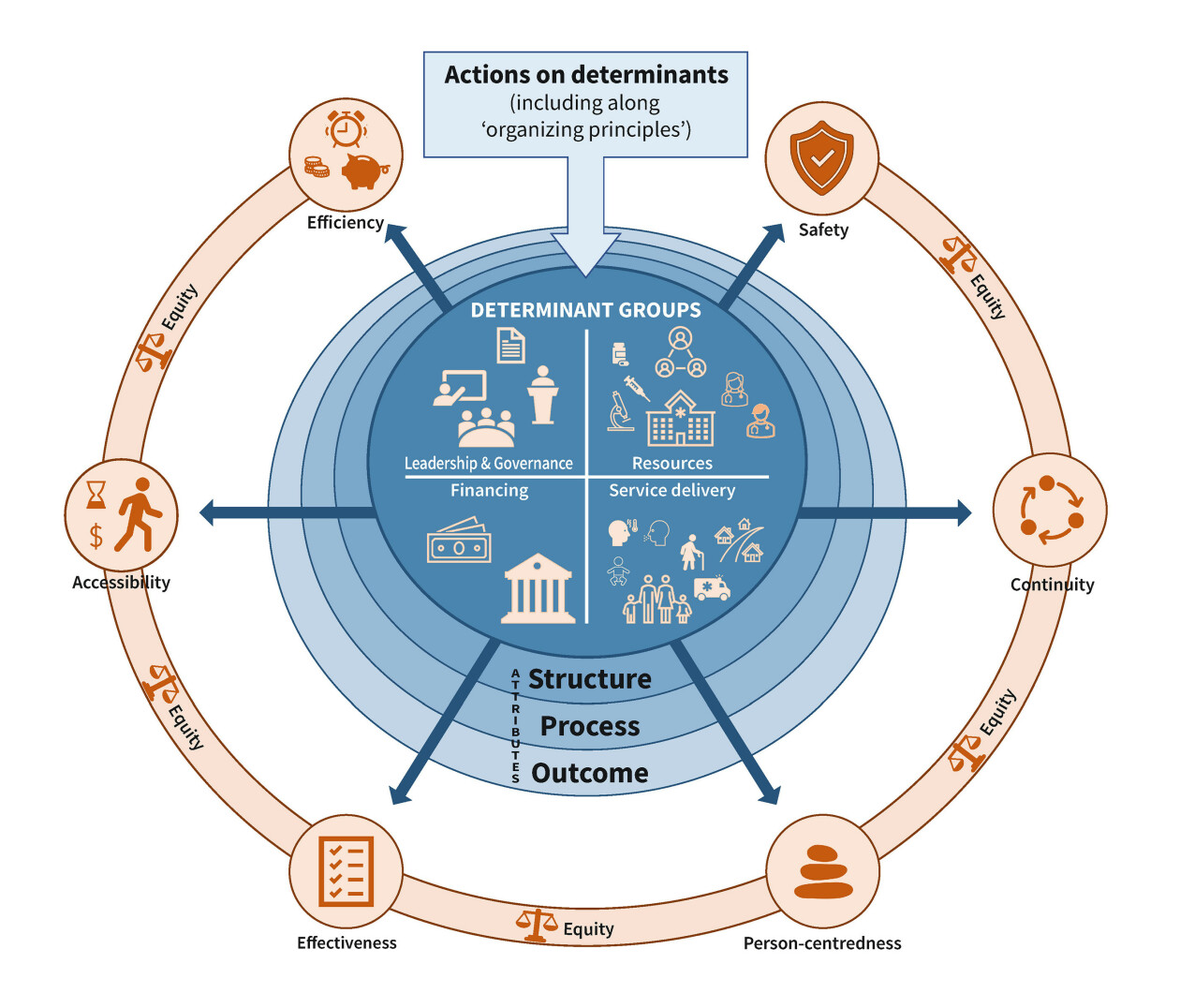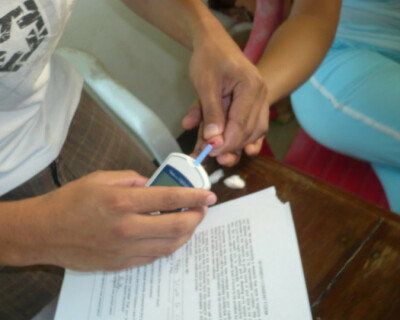
Quality of care for chronic conditions
Chronic conditions – whether noncommunicable or infectious in nature – are broadly defined as conditions that last one year or more and require ongoing medical attention or limit activities of daily living or both. They account for almost three quarters of deaths around the world (based on mortality from noncommunicable diseases and HIV/AIDS). Chronic conditions raise particular issues. For instance, one should try to offer to persons with chronic conditions (PwCC) a seamless journey in the health system across services, providers, levels of care, etc. It is thus crucial to give sufficiently tailored, detailed and comprehensive meaning to care integration and continuity of care (for a seamless journey), to acknowledge the reality of multimorbidity, and to support the needs of people with chronic conditions considering not only biomedical/clinical but also psychosocial aspects to adapt and self-manage in the face of social, physical, and emotional challenges.
Unit of Health Policy
The Unit of Health Policy of the Department of Public Health is actively involved in research and education on chronic conditions, and capacity strengthening of several LMICs.
Framework on quality of care for chronic conditions
As part of the work commissioned by the World Health Organization, Ku, Van de Put, Katsuva, Ag-Ahmed, Rosenberg and Meessen constructed a framework for quality of care for chronic conditions (the CCCQ Framework). The framework proposes seven quality aims: effectiveness; efficiency; equitability; timeliness, affordability and accessibility; safety; person-centredness; and continuity. It is expected that actions need to be organised around health system building blocks: leadership and governance; health financing; resources such as medicines, diagnostics and people including human resources for health and people with chronic conditions; and service delivery) to achieve the quality aims. Achievement of the aims can then be measured through structure, process, and outcome attributes.
As a second stage, we looked into the possible contribution of purchasing arrangements in low- and middle-income countries.
Supplementary materials relative to this study:

International research network on quality of care for chronic conditions
We recently formed and are coordinating an international research network on quality of care for chronic conditions, funded by FWO, involving:
Unit of Health Policy & Unit of Pharmaceutical Public Health, Department of Public Health, Institute of Tropical Medicine Antwerp (Belgium)
Frailty in Ageing Research Group, Department of Gerontology, Faculty of Medicine and Pharmacy, Vrije Universiteit Brussel (Belgium)
Center for Health Research and Policy Support, National Institute of Public Health (Cambodia)
Clinical Public Health Division, Department of Family and Community Medicine, Dalla Lana School of Public Health, University of Toronto (Canada)
Latin American Group for Multidisciplinary Research on Chronic Diseases, University of Antioquia (Colombia)
Department of Epidemiology and Biostatistics, Kwame Nkrumah University of Science and Technology (Ghana)
Ateneo Center for Research and Innovation, Ateneo de Manila University, School of Medicine and Public Health (Philippines)
Department of Preventive Medicine, Faculty of Medicine and Surgery, University of Santo Tomas (Philippines)
Faculty of Medicine, University of Ljubljana (Slovenia)
Chiang Mai University (Thailand)
The General practitioners/Family physicians Association of Thailand (Thailand)
Global Health Economics, Erasmus School of Health Policy & Management (the Netherlands)
Global Cardiovascular Health Research Group, Department of Global Public Health & Bioethics, Julius Center for Health Sciences and Primary Care, University Medical Center Utrecht, Utrecht University (the Netherlands)
Care and Public Health Research Institute (CAPHRI), Faculty of Health, Medicine and Life Sciences (Maastricht University)
Education
We are involved in various courses offered at the Institute of Tropical Medicine:
MSc in Public Health
Master's programme
Challenges in International Health
Short course
Non-Communicable Diseases
Short course
Other activities
Other activities on chronic conditions include:
Kisan2
Community health promotion programme for cardiometabolic health among households in Kisantu, the Democratic Republic of the Congo
Funded by the province of Antwerp
NIPH capacity strengthening
Capacity strengthening of the National Institute of Public Health, Cambodia, to generate evidence on organisation of good quality NCD care and services
Funded by DGD Belgium
CAPSTONE
Capacity strengthening of transdisciplinary education for non-communicable disease care in West Africa (Ghana and the Gambias)
Funded by Erasmus+ CBHEI
ITP AAU UA
Developing a robust and comprehensive set of training materials on non-communicable diseases, Ethiopia
Funded by VLIR-UOS
SCUBY
Scale-up diabetes and hypertension care
Funded by EC Horizon
Chronic respiratory diseases (CRD) in Africa
Identifying social determinants and formulating appropriate, strategic responses for chronic respiratory diseases in sub-Saharan Africa
Funded by Enabel
